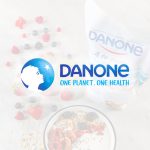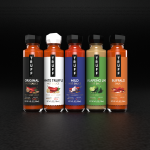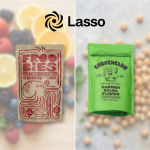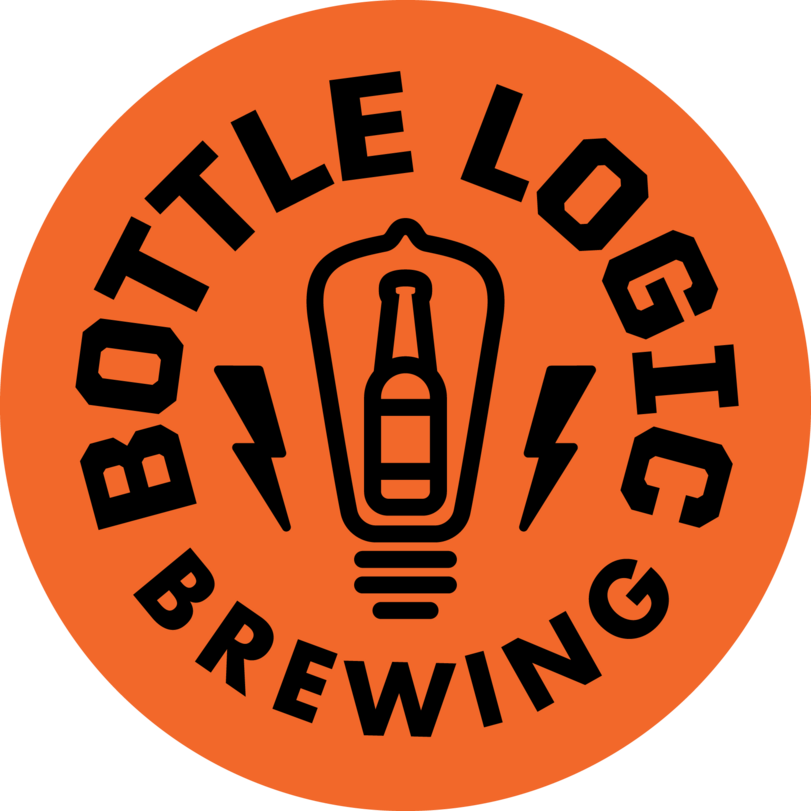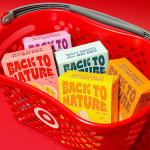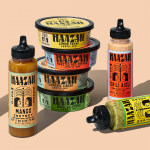JUST Adopts Coke’s Model to Grow
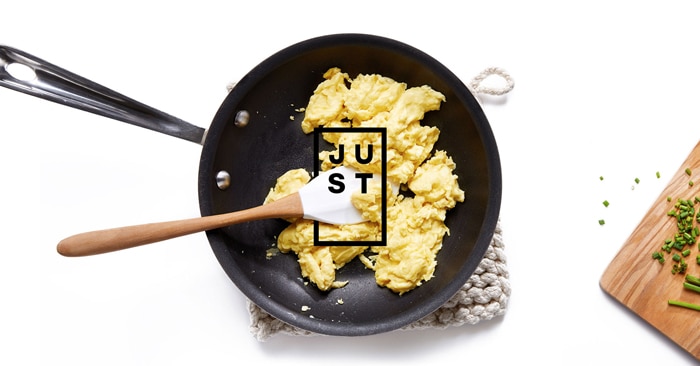
Sometimes you have to break a few eggs to make a plant-based omelette. When JUST — then known as Hampton Creek — started up roughly a decade ago, founder Josh Tetrick wanted to shake up the food industry. While his goal has remained the same, the path has changed. The company has expanded its strategy beyond its own branded products to form strategic partnerships with a focus on ingredients as the way forward. To start, the company announced this week a new food service partnership with Michael Foods, a subsidiary of Post Holdings and one of the largest processors of egg products in the world.
Under the terms of the agreement, Michael Foods will be the exclusive food service manufacturer, supplier and distributor of JUST Egg liquid as well as JUST Egg folded (a frozen patty). The key ingredient in both is a protein derived from mung beans, which yields an egg alternative that is cholesterol-free, dairy-free and non-GMO. JUST expects the first production and shipments from Michael Foods to roll out later this year.
The announcement follows similar agreements in March with South Korea’s SPC Samlip, Southeast Asia’s Betagro Group and global bakery company Grupo Bimbo to produce, package and/or distribute JUST products.
The shift in strategy isn’t a shift in mission, Tetrick insists.
“I used to say to my team, ‘What would it look like if we just started the food system over — we start everything from scratch?’ And now I think back to it and I don’t think that makes a whole lot of sense,” he said. “You don’t need to start [the whole thing] over, you can just make it more efficient and what needs to be rethought about is what goes in that system.”
Under this new model, JUST will find and develop novel ingredients, such as the JUST egg protein, as well as conduct the R&D to create finalized products. The company will then sell this raw product to producers, who will follow a specific manufacturing process and recipe, package the item, and sell it into retailers or food service providers.
In terms of awareness and marketing, JUST will manage large brand-building initiatives such as digital marketing campaigns, in-person activations, and television commercials, while producers will commit to industry specific marketing activities such as promotional plans in retailers.
Tetrick is basing his model on that of a well-known food company: Coca-Cola, which expanded beyond the Atlanta market in the 1890’s by selling just its syrup to a Tennese producer; it’s still the company’s core business.
“Coca-Cola isn’t actually selling you a bottle of Coca-Cola. What they are doing is selling syrup to a bottling partner who is then doing everything else always under Coca-Cola’s brand,” Tetrick said. “We basically said ‘Coca-Cola seems to know what they’re doing — that’s why they’re in more countries than the United Nations — how do we find a way to make that work for us?’”
The company has even gone as far as to review Coca-Cola bottling supplier agreements to help in drafting its own paperwork. It also added Jacob Robbins to its board — now the CEO of agribusiness Emeterra, Robbins was formerly employed by Coca-Cola for 20 years, including years spent as the Director of Strategic Procurement and Managing Director of global sweeteners.
Currently JUST is using co-packers to produce its liquid and frozen products, but hopes to have all product, packaging, and marketing transitioned to partners such as Michael Foods by the end of 2020.
Still, that doesn’t mean there’s not work to be done on JUST’s end to make its prices more comparable to that of conventional eggs, Tetrick said. While the company has been able to lower the price of JUST Egg liquid, which is in roughly 10,000 doors, from a MSRP of $7.99-$6.99 to $4.99, the company hopes to go even lower. Last year, 1.4 trillion eggs were laid at an average cost of eight cents per egg (roughly 1.5 oz); the equivalent amount of JUST Egg currently costs just below 20 cents.
“Our ability to effectively [reach a mass audience] is the difference in our mind between being a nice company that people will feel proud to work with and will have had a positive impact on the food system or being the company that we always intended to be all along…. serving folks who can’t afford to eat well right now,” he said.
Tetrick says has a plan for this, too. To begin with, he wants to make the process of removing the protein from mung beans more efficient: the company is in the process of bringing new machinery online at its Appleton, Minnesota plant and has also set up a partnership with Emsland Group, a leader in pea-based ingredients. Next, he wants to monetize the leftover starch from when the mung bean protein is removed, which currently is a waste product and accounts for the majority of the mung bean. JUST also plans to diversify its sourcing of mung beans, and as it scales, negotiate larger purchase orders.
That strategy could put JUST in a position to potentially capture a wider consumer audience, especially as the COVID-19 pandemic brings to light some of the systemic issues with egg, meat and dairy supply chains. As of the end of April, year-to-date sales of JUST Egg are up 200% over 2019, the company said, adding that as of May 17, the company’s sales surpassed 80% of other egg SKUs. While some of this may be attributable to eggs being out of stock in some retailers, these sales are still driving new trial of the product.
There’s also potential in food service. Although quick-service and higher end restaurants alike have jumped to offer Impossible Food or Beyond Meat alternatives, no egg replacement has penetrated the likes of Dunkin Donuts or McDonald’s breakfast menus. Launching the frozen, folded egg in January was in part designed to make selling into these channels easier, Tetrick said.
“A primary reason for [this launch] is to correct for that conversation that I’ve had on more than one occasion with major QSRs who are like ‘I’m down, but operationally you’ve got to help me,’” Tetrick said of restaurants’ desire for an easy-to-prepare item.
But according to Tetrick, it’s been a long road for JUST to even get to this point, one that required introspection on his part.
“[There] was [a] whole mindset shift,” Tetrick said. “You can leverage what works well and focus on what you’re really good at and maybe you can accomplish your mission in a more sane and accelerated way then if you were too arrogant to think you could do the whole thing yourself.”

